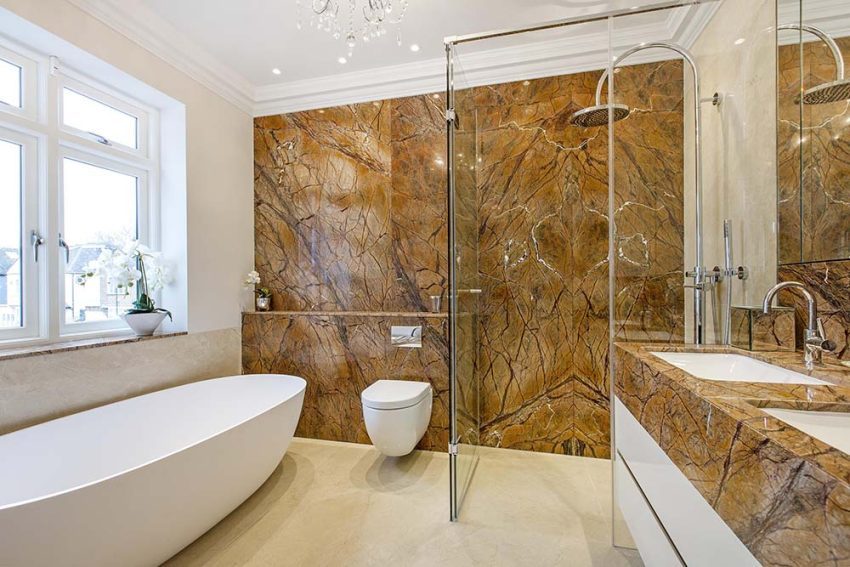Identifying the best stone for your bathroom involves considering several factors such as durability, water resistance, maintenance requirements, aesthetics, and budget. With a wide range of options available, it’s essential to choose a stone that not only suits your personal style but also meets the functional needs of a bathroom environment. Here are some key considerations to help you identify the best stone for your bathroom:
Durability:
Bathrooms are high-moisture areas that require materials capable of withstanding water exposure and frequent use. Look for stones that are known for their durability, such as granite, quartzite, or engineered quartz. These stones are resistant to moisture, stains, and scratches, making them ideal choices for bathroom surfaces.
Water Resistance:
Since bathrooms are prone to water splashes and high humidity, it’s crucial to select stones that are water-resistant. Avoid stones like marble, which is more porous and can be susceptible to water damage over time. Instead, consider options like granite or quartzite that have low water absorption rates and are less prone to staining or warping.
Maintenance Requirements:
Consider the level of maintenance you’re willing to invest in your bathroom stone. Some stones require regular sealing or special care to maintain their appearance and longevity. If you prefer low-maintenance options, quartz or porcelain tiles are excellent choices. They are non-porous, easy to clean, and do not require sealing.
Aesthetics:
The stone you choose should align with your desired aesthetic for the bathroom. Consider the color, pattern, and texture that will complement the overall design scheme. Natural stones like marble or travertine offer unique veining and patterns, while quartz or porcelain tiles provide a wide range of colors and finishes to suit various styles.
Slip Resistance:
Bathroom floors can become slippery, especially when wet. To ensure safety, opt for stones with a textured or honed finish that provides better traction. Avoid highly polished surfaces that can be slippery, particularly in areas where water is commonly present, such as shower floors.
Budget:
Set a budget for your bathroom project and consider stones that fit within that range. Natural stones like marble or granite tend to be more expensive, while engineered quartz or porcelain tiles offer more affordable options. However, keep in mind that investing in higher-quality and durable materials can save you money on repairs or replacements in the long run.
Compatibility with Bathroom Fixtures:
Consider how the stone will coordinate with other elements in your bathroom, such as fixtures, cabinetry, and wall colors. Ensure that the stone you choose complements the overall design scheme and creates a cohesive look.
Personal Preference:
Ultimately, your personal preference plays a significant role in selecting the best stone for your bathroom. Take into account your style preferences, whether you prefer a sleek and modern look, a classic and timeless design, or a more natural and rustic feel.
When identifying the best stone for your bathroom, it’s essential to strike a balance between functionality, aesthetics, and budget. By considering factors such as durability, water resistance, maintenance requirements, aesthetics, slip resistance, compatibility with fixtures, and personal preference, you can find the perfect stone that enhances the beauty and functionality of your bathroom space.

